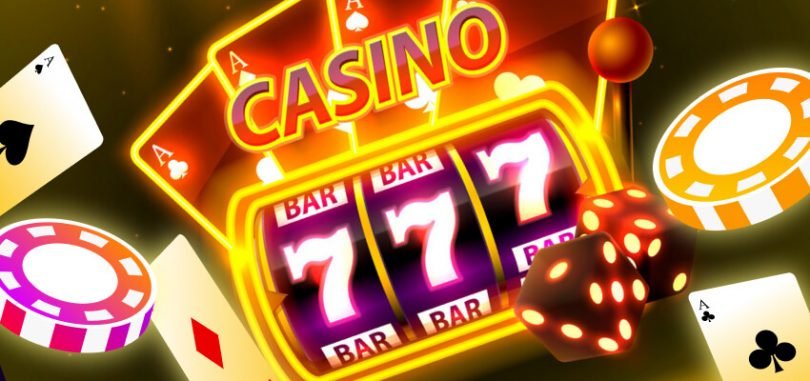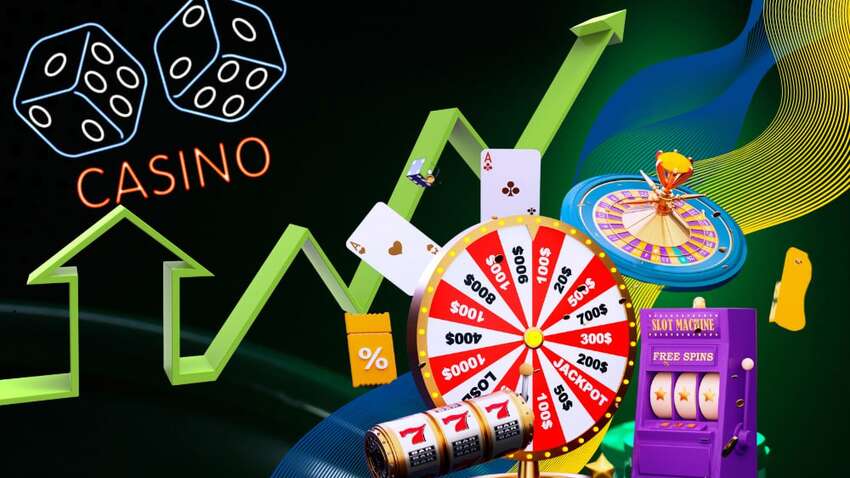
The term Online Casino God Odds can evoke images of unbeatable systems and mythical edges, but reality is more nuanced. For players seeking an edge, the first step is education; start by visiting reliable resources such as Online Casino God Odds gododds.co.uk to learn how return-to-player (RTP), volatility, and casino policies interact to shape your real chances at winning.
What players often call “god odds” usually refers to a perception of certainty or unusually favorable conditions. In practice, no online casino grants guaranteed success — the house edge exists to ensure long-term profitability for the operator. However, there are measurable ways to improve expected outcomes and make wiser choices about where and how to play. Understanding math, variance, promotions, and legal protections is the difference between chasing illusions and making informed decisions.
Return-to-Player (RTP) is the central metric. Expressed as a percentage, RTP represents the theoretical long-term payback of a game. A slot with 96% RTP means that, over a very large number of spins, the machine will return an average of 96 units for every 100 wagered. RTP is theoretical, not predictive: short sessions can and often do deviate wildly from expectation due to variance. Games with higher RTPs generally offer better long-term value; table games like blackjack and video poker often have the highest published RTPs when played with optimal strategy.
Volatility (or variance) describes how wins are distributed. Low-volatility games give frequent small wins; high-volatility games pay less often but can deliver much larger jackpots. If you want steadier play and longer session times with smaller bankrolls, choose low-volatility options. If you chase big payouts and accept long losing stretches, high volatility may suit you — but it requires a larger bankroll and a tolerant mindset toward swings.
Game selection matters. Classic table games where skill influences results—blackjack, video poker, and certain forms of poker—offer real opportunities to reduce the house edge. Learn basic strategy for blackjack, perfect play charts for video poker, and solid poker fundamentals for multiplayer tables. Conversely, most slot machines are purely chance-based; pick slots with higher RTPs, generous bonus features, and transparent mathematics where available.
Bonuses and promotions are a double-edged sword. Casinos advertise free spins, deposit matches, and no-deposit offers to attract players. These can tilt the math in your favor when used selectively, but you must read wagering requirements, game contributions, and maximum cashout limits. A 100% bonus with a 40x wagering requirement is often worse than a smaller bonus with fairer terms. Prioritize offers that boost effective RTP and allow you to play with a measured strategy.
Bankroll management is foundational to any approach that aims to improve odds. Set a dedicated gambling budget and divide it into session stakes. Use flat betting rather than random increases after wins or losses; this reduces the risk of catastrophic drawdowns. Many successful players use the 1-2% rule: never stake more than 1–2% of your bankroll on a single bet. This conserves capital and smooths variance, letting skill and favorable odds express themselves over a greater number of trials.

Advantage play techniques exist, but they require work and discipline. Card counting in live blackjack, tournament strategies in poker, and optimal video poker play can yield measurable edges. These methods are far from infallible — they demand practice, attention to casino countermeasures, and ethical consideration. Online environments sometimes alter rules, use continuous shuffling, or apply RNG mechanics that nullify advantage plays commonly employed in land-based casinos.
Fairness and regulation are non-negotiable. Choose casinos licensed by reputable jurisdictions and audited by third-party testing agencies. Licensing and audits protect you from rigged games, unfair payout calculations, and unresolved disputes. Look for seals from independent labs that publish RNG and RTP reports; transparency in terms and responsible gambling tools are also strong signals of legitimacy.
Know the limits of strategy. No advice can eliminate house edge entirely on games designed for profit. Focus on maximizing expected value rather than chasing certainty. Small improvements — choosing higher-RTP variants, using bonuses smartly, employing basic strategy — compound over time and produce better outcomes than chasing a mythical “god odds” system.
Psychology matters. Gambling triggers emotional responses that can sabotage rational decision-making. Recognize cognitive biases: gambler’s fallacy (believing past results influence independent spins), confirmation bias (seeking only information that supports your hope), and loss chasing (increasing stakes to recover losses). Set session limits, use timeouts, and never stake money you cannot afford to lose. Responsible gaming tools offered by casinos, such as deposit limits and self-exclusion, are practical aids to maintain control.
Technology has introduced both benefits and new considerations. Live dealer games bridge the gap between online convenience and real-world interaction, often offering transparent card decks and relaxed dealer behavior. Mobile platforms make play accessible but also risk impulsive sessions; use device-based settings and notifications to guard against overuse. Be cautious with third-party software promising guaranteed wins — these are typically scams and can compromise your account or funds.
Track results. Keep a simple record of deposits, withdrawals, wins, losses, and promotions used. Over time, this data helps you identify which games and offers produce the best outcomes for your style. Many recreational players are surprised to find that games they enjoy most are not those that yield the best long-term results; tracking helps reconcile enjoyment with expected value.
Community knowledge can be useful when treated critically. Forums, review sites, and strategy guides offer fresh perspectives but also echo marketing claims. Cross-reference information from multiple reputable sources and favor evidence-based analysis: published RTP tables, audit certificates, and hands-on reviews from unbiased testers.
In summary, Online Casino God Odds is less about divine certainty and more about disciplined, informed play. Educate yourself on RTP and volatility, choose well-regulated sites, use bonuses strategically, manage your bankroll, and employ skill where it reduces the house edge. Combine these practices with responsible gambling habits and a healthy perspective on risk. The result is not a miracle but a realistic improvement in your chances and a more sustainable, enjoyable gaming experience.

 Reporter Name
Reporter Name 





